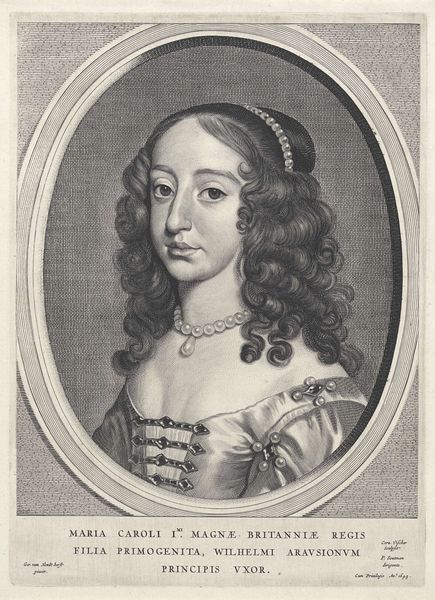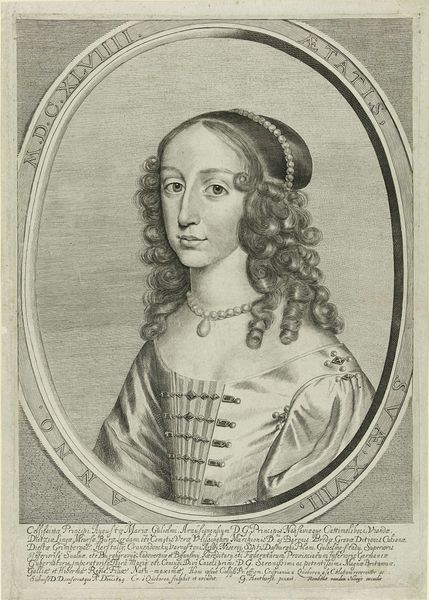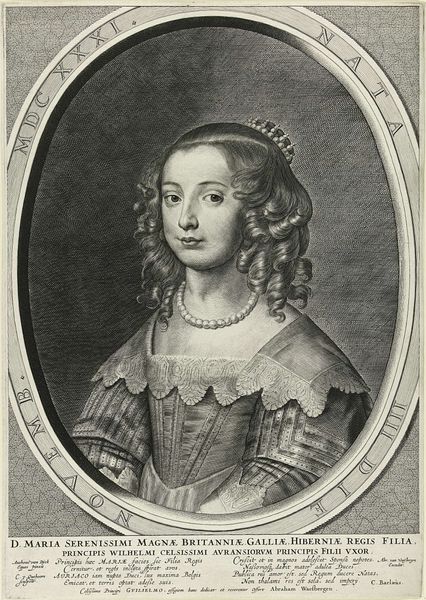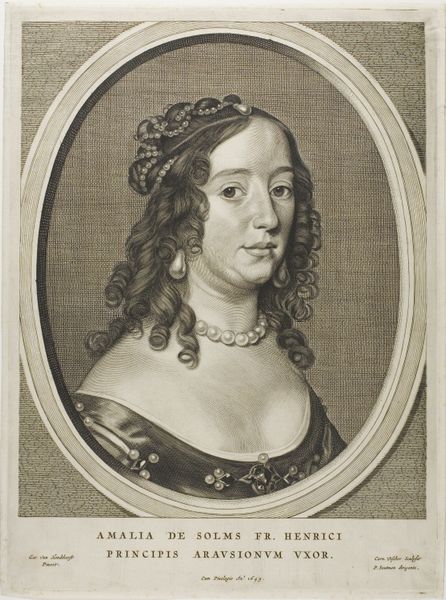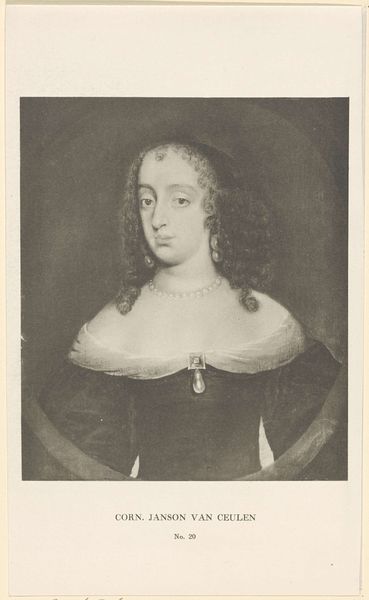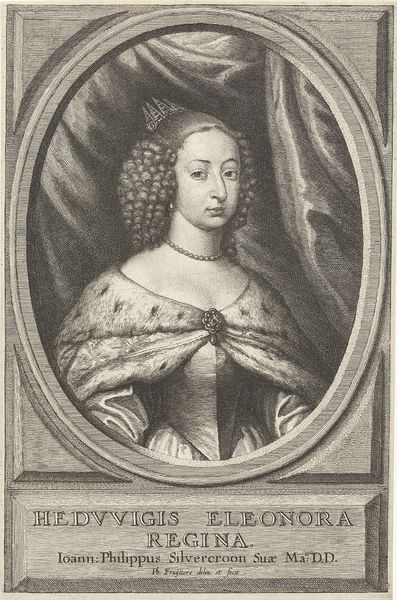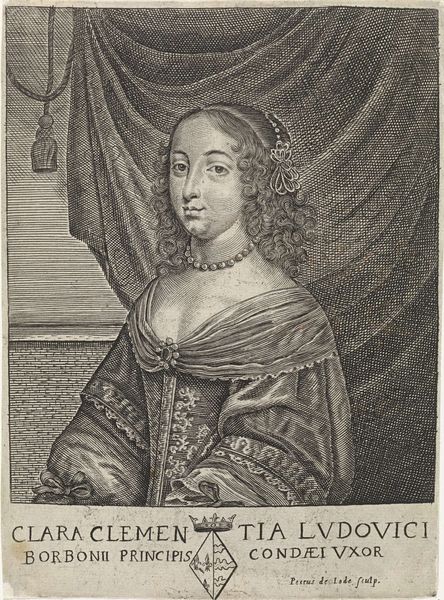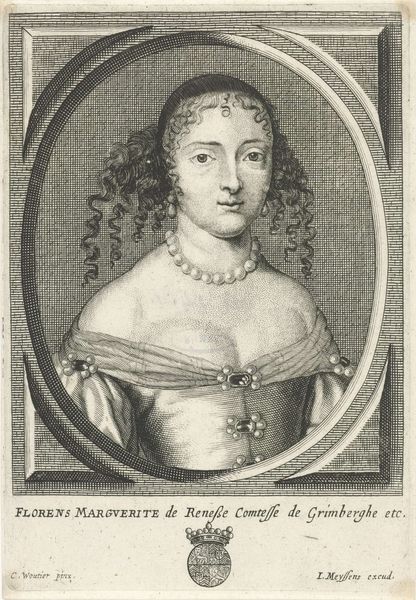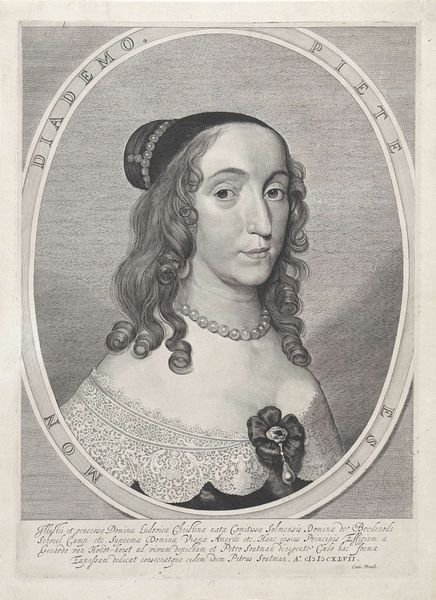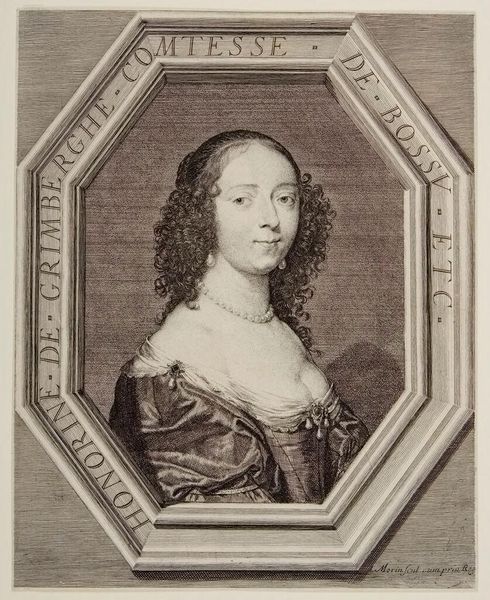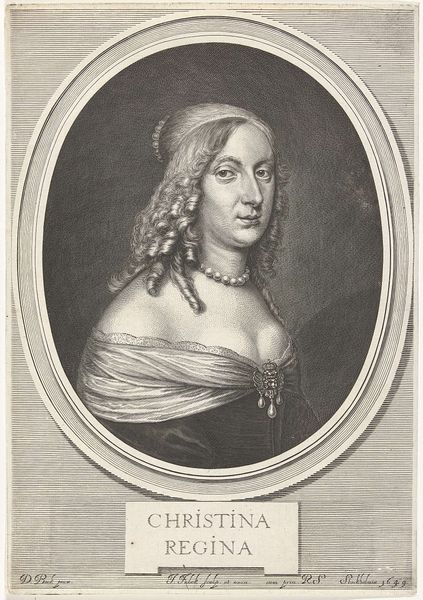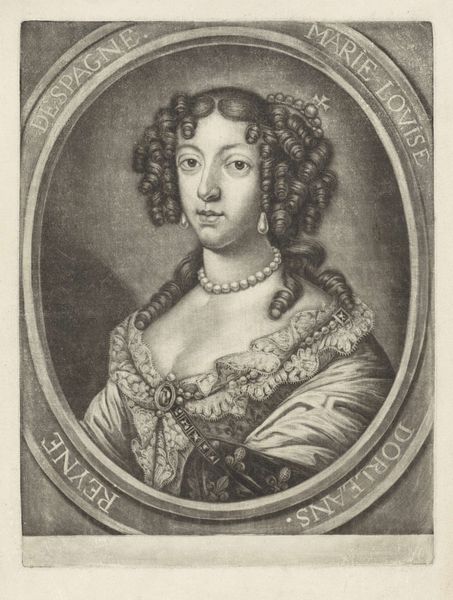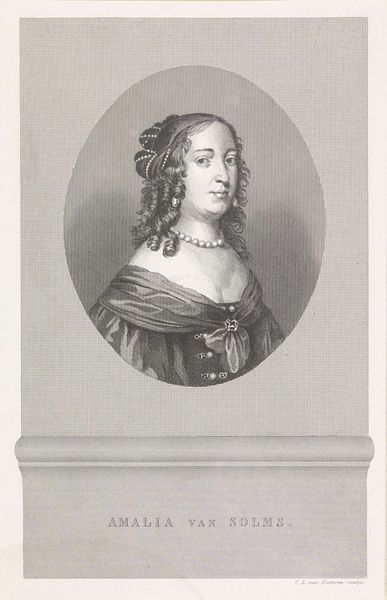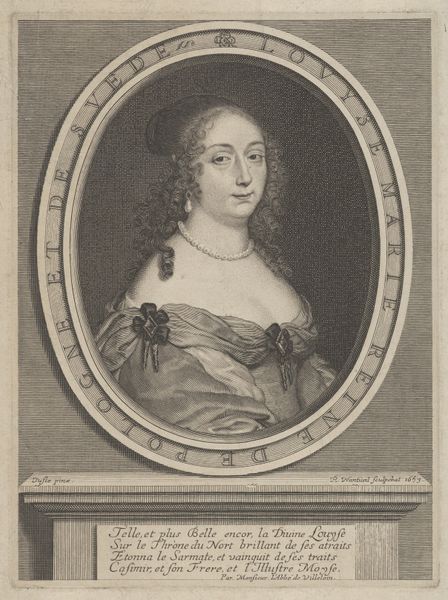
print, engraving
#
portrait
#
baroque
# print
#
figuration
#
line
#
engraving
Dimensions: height 418 mm, width 306 mm
Copyright: Rijks Museum: Open Domain
This print of Louise Henriëtte, Princess of Orange, was made by Cornelis Visscher sometime in the mid-17th century. Visscher was a master of engraving, a printmaking process that involves incising an image into a metal plate, inking it, and then pressing it onto paper. The fine lines and shading that define Louise Henriëtte’s features and clothing required immense skill and labor. The burin, a specialized tool, was used to cut thousands of tiny grooves into the copperplate. This was highly specialized work, and its graphic output was perfect for distributing idealized images of the aristocracy. Engravings like this one weren't just about artistic expression; they were also about commerce and social status. Prints were luxury goods, affordable only to the wealthy, and they helped to circulate images of power and prestige. The very act of creating and collecting prints reinforced the social hierarchy of the time. So, when we look at this image, we're not just seeing a portrait of a princess, we're seeing the material embodiment of social and economic structures.
Comments
No comments
Be the first to comment and join the conversation on the ultimate creative platform.
